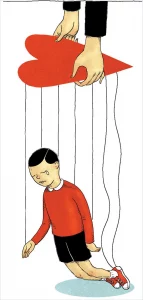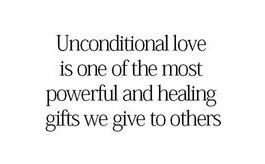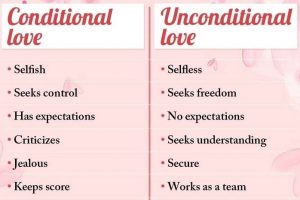 For the past 3 years, I have been using NVR in my work with individual families and in groups within my CAMH’s role. I am currently completing the PartnershipProjects Accreditation Module as my final stage of training in NVR. I knew this would be an enriching experience to discover how other practitioners applied and utilised NVR as an approach.
For the past 3 years, I have been using NVR in my work with individual families and in groups within my CAMH’s role. I am currently completing the PartnershipProjects Accreditation Module as my final stage of training in NVR. I knew this would be an enriching experience to discover how other practitioners applied and utilised NVR as an approach.
The title for my blog post is “unconditional love”. This subject brought about many considerations at one of the early sessions of an NVR parent group. In the group, I described the stance of unconditional love as a cornerstone of NVR. I became very aware of the possible impact of my words on one of the parents. She was a foster mother who I had met just once before. I felt concerned that the words, “I am here, you cannot get rid of me, I am your parent, I will always be here, I love you”, might not resonate with her lived reality.
Would my words alienate her? In my West Indian culture and experience, putting into words, ‘I love you’ by a mother to her child is less common. Parents showed their deep love of their children in their actions of care and commitment. As a child, it seemed to me, an accepted given and had no necessity to be said. I began to wonder whether that “felt love” was in fact, conditional on the child behaving well and doing well at school. For if the child erred, punitive, shaming, and harsh retribution often followed. So were there limits to the notion of unconditional love in childhood? Was it even possible?
In the delivery of the parent group-work, biological parents sometimes express their heartfelt distress about the loss of their love and a deep loss of connection of feelings, for their children. The pain and hurt experienced is so seismic that it can easily lead parents to positions of self-blame and inadequacy. Utilising the support of the group, we are able to acknowledge and validate their experience of failure and grief in the face of persistent violence. We can give a measure of hope that in non-violence resistance, there is a way forward. When feelings of a lack of unconditional love is accepted, normalised and thought about, it can create a space for other possibilities. For the beginning of a journey of letting go (of the conditions) and of finding other ways to relate to their children. This holds true for foster parents.
experienced is so seismic that it can easily lead parents to positions of self-blame and inadequacy. Utilising the support of the group, we are able to acknowledge and validate their experience of failure and grief in the face of persistent violence. We can give a measure of hope that in non-violence resistance, there is a way forward. When feelings of a lack of unconditional love is accepted, normalised and thought about, it can create a space for other possibilities. For the beginning of a journey of letting go (of the conditions) and of finding other ways to relate to their children. This holds true for foster parents.
I began to think more about the dilemmas faced by foster carers in their roles, to hold both the children’s need for unconditional love and to maintain a steadfast commitment to them while bearing the uncertainty of not knowing the duration of any placement. In addition, I surmise that it is also possible that some foster carers will not necessarily feel love for the child, let alone an enduring love.
I began to think of other barriers to providing loving care, such as feelings of being scrutinised, of being under supervision, of being blamed and criticised by the agencies including social care, school and CAMHS professionals. For example: being too soft, becoming too attached or not having firm boundaries. In addition, the attitudes of family and friends that might also be critical in the face of ongoing rude and violent behaviour of the children in their care.
I thought of the complex nature of having to manage and negotiate the myriad of these relationships. How exhausting, frustrating, sometimes confusing and time consuming it might be for both the foster carer and the children whose own emotional regulation was already compromised.
Was it too much to ask of foster parents to find a position of unconditional love and what would it look like?
In the course of my work with the foster carer, I was struck by her accounts of the child’s deep desire to belong to her and her extended family and his fears of rejection which he repeatedly projected into her by blaming her of not wanting or wishing to get rid of them. The foster carer described times when she felt, despite all her efforts, it was not enough. Her own beliefs in wanting what was in the child’s best interest, motivated her initially to continue providing care. I believe, her love of the child sustained her continued steadfast commitment despite the aggressive behaviour which was becoming an increasing concern. She readily accepted the offer to attend an NVR parent group.
 She began, perhaps sceptically, to embrace the ideas of de-escalation and raising parental presence. She described how after managing an episode of challenging provocation, the child turned to her and gave a smile and a ‘thumbs up’. We were able to use this example of how appreciated the non-escalatory practice was received by the child and a sense of the child’s recognition that their relationship had been both protected and strengthened. The foster carer’s perseverance and self-control had increased her parental presence and she was letting go of her impulse to correct the child’s behaviour.
She began, perhaps sceptically, to embrace the ideas of de-escalation and raising parental presence. She described how after managing an episode of challenging provocation, the child turned to her and gave a smile and a ‘thumbs up’. We were able to use this example of how appreciated the non-escalatory practice was received by the child and a sense of the child’s recognition that their relationship had been both protected and strengthened. The foster carer’s perseverance and self-control had increased her parental presence and she was letting go of her impulse to correct the child’s behaviour.
We explored the use of relational gestures to bridge the unmet need for belonging. For example, sending notes to the child during the school day.
Her commitment was unquestionable. There were numerous hospital appointments, and she found ways to resist escalation when it opposed the child’s wishes. She worked persistently with education to ensure the educational settings were appropriate.
To manage challenging behaviours with patience and acceptance can be particularly tricky in situations that expose oneself to shame. For example when others are involved, neighbours, teachers, police. On one occasion, attending service providers noticed and commended her ability to remain calm. Her self-control in these situations demonstrated her resolve to provide continuity of care and her attunement to the child’s needs. This further validated her parental presence. She was later also able to repair the rupture in their relationship in a non-escalatory manner.
In conclusion, I suggest that the pursuit of developing non-escalatory methods to deal with the everyday challenges and demands of family life, offer opportunities for children to feel connected and experience a sense of belonging, constancy and safety. And it is the surety of these elements that communicate unconditional love and become internalised.
I also wonder whether, in the painful process of “letting go” of the need for prioritising consequences for unacceptable behaviour; of the idea that it is your duty and responsibility to control your child’s behaviour through correction; and of the critical and blaming voices both internal and external; parents and foster carers alike are liberated to provide the essence of unconditional love.
through correction; and of the critical and blaming voices both internal and external; parents and foster carers alike are liberated to provide the essence of unconditional love.
Perhaps Haim Omer’s elements of New Authority, of presence, persistence, self-control, and support represent the flotilla that vigorously communicates to all who observe, experience, and practice it, the means of unconditional love.
Christine Cork, PartnershipProjects Associate
NVR Practitioner & Accreditation Module Participant (2022)
